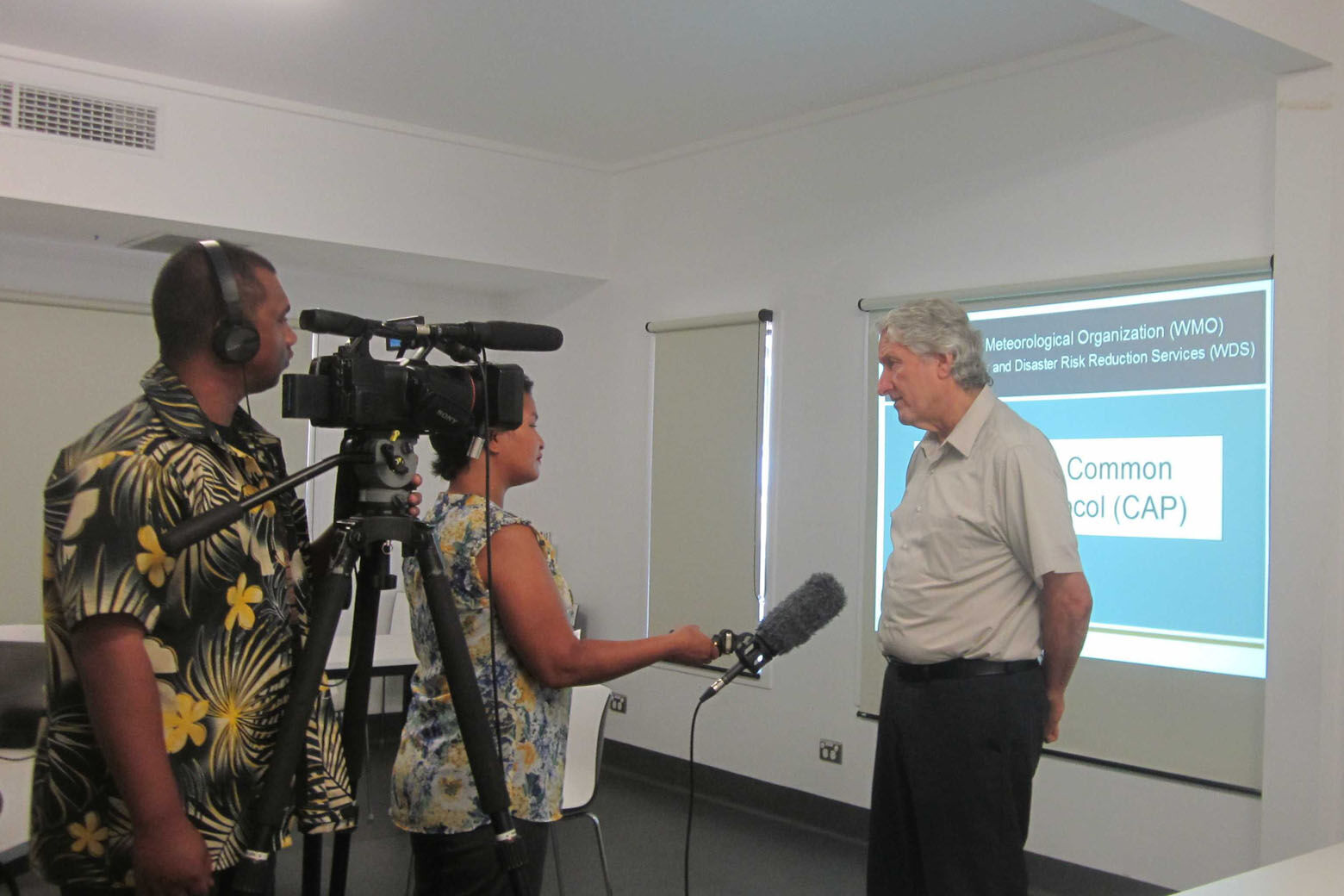
It’s a small company with a huge goal: bringing automated emergency alerts to the developing world.
Eliot Christian, who lives in Reston, Virginia, is the CEO of Alert-Hub.org.
CAP — short for Common Alerting Protocol — is in use in the United States and in most developed countries. Christian said the focus of his nonprofit is getting that system into the least-developed and developing countries because they are the most vulnerable.
Christian said Americans already benefit from the system — and not only on our cellphones or television or over radio.
For example, “We get digital highways signs giving us warnings, we have sirens that automatically sound within seconds, we have train gates and bridge gates that stop us in the event of an earthquake,” Christian said.
He added, “The rest of the world needs what we’ve already had for 20 years: an automated, machine-processable alerting system.”
Christian has been promoting CAP internationally since 2001, when he helped develop the Common Alerting Protocol standard after 9/11.
The Federal Emergency Management Agency says a single CAP emergency message can trigger a variety of public warning systems.
Christian and a colleague in Sheffield, England, are the company’s sole employees. They work pro bono — in all languages of the world. “The tool I offer right now is in 26 languages. But we can add others within hours,” he says. “We just added Urdu and a few other languages.”
This YouTube video shows an example of the CAP alert for a volcanic eruption on St. Vincent in April 2021.
According to Christian, some countries have taken strong positions on CAP and are rolling it forward, including Canada, Mexico, India, Saudi Arabia, Brazil and New Zealand. There is also a new initiative pulling together all of the Caribbean with its different governments.
Meteoalarm works to get CAP alerts to a grouping of 37 European National Meteorological Services. It provides multilingual warnings in an easy and understandable way to the general public and makes the information available via feeds and the alert hub to worldwide (re)users.
There is no cost for a country or area to get started. Alert-Hub.org has an application that runs on the cloud.
“The alerting authority has to designate who’s allowed to approved those alerts,” Christian said. “Once they make that step, they can be up and running.”
A global public awareness campaign is backing the push to get the world’s nations to implement CAP. An online document, “Call to Action on Emergency Alerting,” lists many international organizations, companies and NGOs — including Google, AccuWeather, the International Federation of Red Cross and Red Crescent Societies and the World Meteorological Organization — that endorse the idea of getting all countries on board by 2025.
Christian says that despite today’s amazing telecommunications services, too many people in harm’s way still do not get timely and effective emergency alerts so they can protect lives and livelihoods. He’s working to change that.








